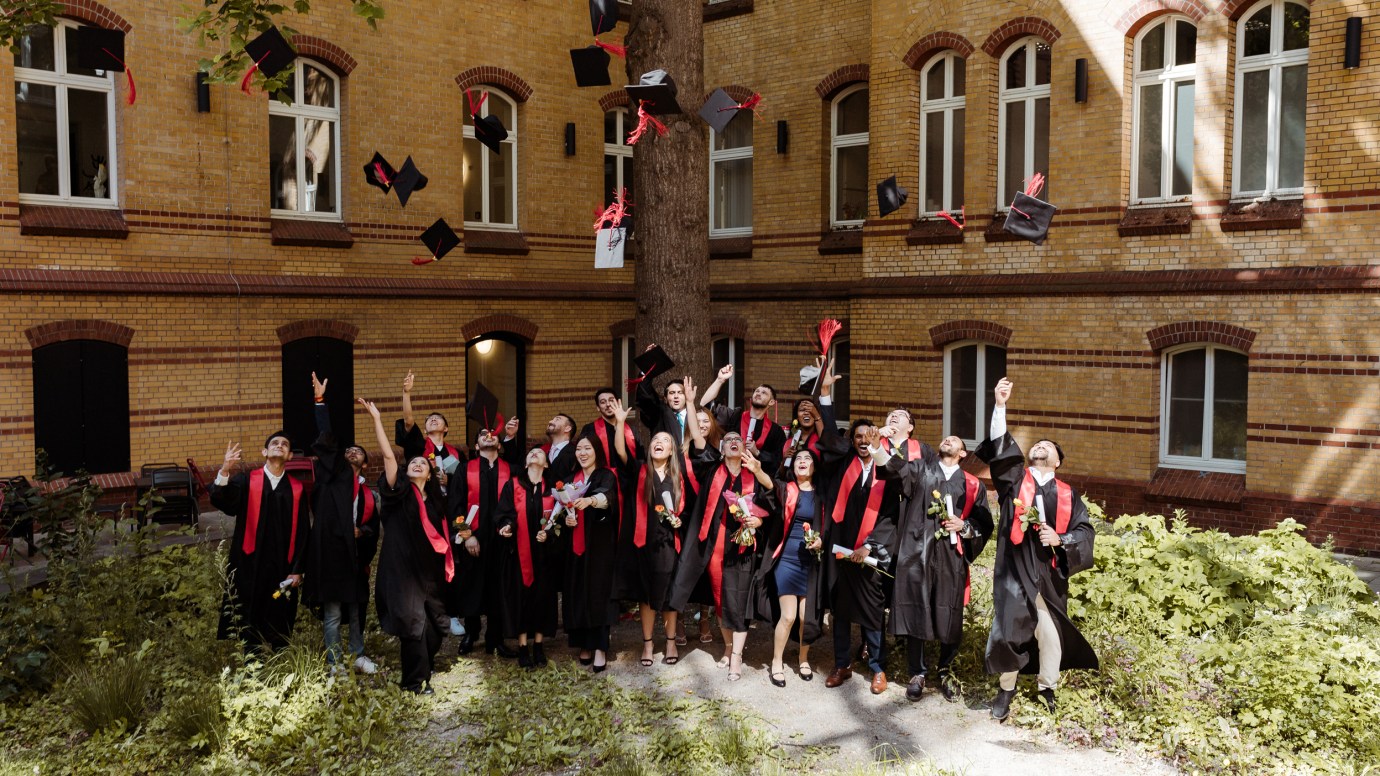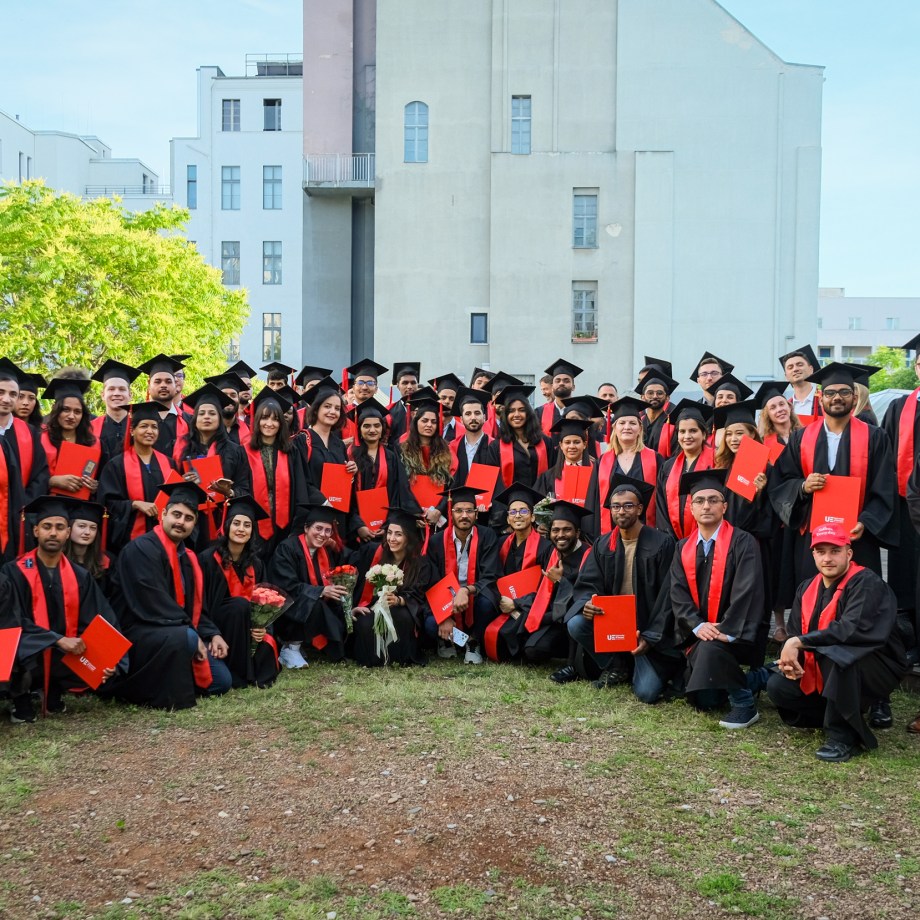
Germany has earned its spot as one of the best countries to start a career thanks to its strong economy, high-quality research facilities and excellent job prospects for graduates. If you’re looking for the best courses after graduation or exploring international master’s programmes in Germany, this guide will help you make an informed decision about your academic future.

Why Study a Master's Degree in Germany?
With many programmes offered in English for international students, Germany is an ideal choice for students seeking a high-quality education without language barriers. Plus, German institutions maintain strong industry partnerships, leading to internships and job placement opportunities. The country’s strategic location means easy access to other European markets, expanding career possibilities beyond borders.

Benefits of Studying a Master’s in Germany
Globally recognised qualifications
Germany has many top-ranked public and private universities[MK1] maintaining its high academic standards, where its degrees are recognised and respected worldwide. The country is well-known for research and innovation, ensuring students receive top-quality education on par with industry developments.
Strong economy
Germany is the strongest economy in Europe, with 80 Fortune 500 companies in the country, including BMW, SAP, Siemens and Deutsche Bank. The country’s huge demand for skilled professionals is an excellent prospect for graduates.
Affordability
In comparison to other countries in Europe, like the UK or France, many postgraduate degrees in Germany charge minimal fees and are often very affordable. Many institutions offer scholarship opportunities for international students, making master’s degrees accessible for diverse economic backgrounds.
Diverse course offerings
There are plenty of specialised international master's programmes in Germany, from engineering to data science to management and design. Some even include internships and work placements as part of the course.
Top High-Paying Master’s Courses in Germany
Some of the highest-paying jobs in Germany are in Engineering, IT, Finance, Business and more! Here are some of the best courses after graduation that lead to rewarding career paths:
- Business Administration and Management
Many German business schools offer the popular Master of Business Administration or management programmes, which combine theory and practical business skills. Business graduates can earn between €50,000 to €80,000 per year.
- Engineering and Technology
Germany’s engineering industry is world-renowned, whether in automotive, mechanical, civil, or electrical. These master’s courses in Germany open doors to companies like BMW, Bosch, and Mercedes-Benz. Engineering and technology graduates can earn between €50,000 to €70,000 per year.
- Data Science and Artificial Intelligence
With its strong tech and innovation system, Germany is one of the top countries for data science and AI. Professionals in these fields are in high demand, with attractive salaries and opportunities in research and development. Graduates can earn between €45,000 to €70,000 per year.
- Computer Science and Information Technology
Germany’s expanding tech sector and focus on digital transformation have made software development a highly in-demand skill. A computer science degree graduate could earn around €45,000 to €65,000 per year.
- Finance and Accounting
As a major financial hub in Europe, a finance and banking master’s degree is particularly valuable, with graduates securing positions at major banks, consulting firms, and financial institutions with starting salaries ranging from €50,000 to €70,000.
- Renewable Energy and Sustainability
Germany is investing in sustainable energy, creating excellent opportunities in renewable energy engineering. Graduates of renewable energy programmes often secure roles with sustainability-focused organisations and energy companies. Salaries range from €40,000 to €65,000.
Top Career Opportunities with Master’s Courses in Germany
Germany offers diverse career opportunities, with several fast-growing industries:
Technology: Major companies like SAP, Siemens, and Bosch actively recruit graduates with advanced degrees in tech fields like software developers, cybersecurity specialists, and data scientists.
Automotive: Home to BMW, Mercedes-Benz, Volkswagen, and Audi. Master’s courses in automotive engineering, mechanical engineering, and related fields open doors to design, development, manufacturing, and research in this industry.
Healthcare and Sciences: Natural sciences and healthcare master’s degrees offer graduates the opportunity to explore a career in biology, chemistry, physics, biotech, pharmaceuticals and healthcare management.
Business and Finance: Graduates can find roles in investment banking, auditing, financial consulting and financial analysts at leading firms like Deutsche Bank, KPMG, PwC, EY, and Allianz.
Consulting and Professional Services: Companies like McKinsey, Boston Consulting Group, and Deloitte hire graduates for roles such as strategy consultants, business analysts, management consultants, and marketing specialists.
Sustainability and Energy: Germany is looking for renewable energy engineers, environmental consultants, and sustainability managers. The government’s commitment to carbon neutrality by 2045 ensures continued growth in this sector.
Post-Study Job Opportunities in Germany for Master’s Students
So, what are the post-study job options after graduation? Here are some options you can look into:
Post-Study Visa
International students who complete their master’s degree in Germany can apply for the 18-month post-study work visa to live and work in Germany.
Industry Partnerships
Many master’s programmes in Germany include a mandatory internship or work experience with industry partners. Companies use these exclusive programmes to seek and recruit talent, leading to job offers.
Networking Events
German universities maintain a strong alumni network and industry connections to help with job placement. Career fairs, industry events, alumni talks, and mentorship programmes provide students with valuable networking opportunities, which then translate into employment offers.
EU Blue Card
Master’s graduates with a job offer who meet the minimum salary threshold may qualify for the EU Blue Card, which provides a fast track to permanent residency. This programme is great for highly skilled workers and offers numerous benefits, including the ability to bring family members and ultimately German citizenship.
Enrol for the Best Master’s Programmes in Germany with UE Germany
If you’re looking for a university to study a master’s in Germany and secure a high-paying job, then the University of Europe for Applied Sciences (UE) is a great place to start!
At UE, our master’s programmes span technology, design, business, sports, and media, ensuring you receive a solid education that aligns with your career goals.
- Top ranking: Among the top 10 universities for business studies in Germany.
- Award-winning education: Named best private university for further education (Stern magazine).
- Global presence: Campuses in Berlin, Potsdam, Hamburg, Iserlohn, and Dubai (UAE).
- Diverse community: 140+ nationalities represented across all campuses.
- Career success: 90% of graduates secure jobs shortly after graduation.
Browse through our master’s programmes and apply today: https://www.ue-germany.com/programmes
Conclusion
A master’s degree in Germany is one of the best choices to boost your professional career. The strong economy, industry partnerships, and post-study work opportunities create a path where international students can transition seamlessly from education to meaningful careers. With proper planning and the right support, your journey to study a master’s in Germany can be a great start to a rewarding professional life.
FAQ's
Completed bachelor’s degree
Proof of English language proficiency (e.g., IELTS or TOEFL, if the programme is in English)
A CV/resume and motivation letter
Some programmes may also require work experience or a portfolio
Requirements may vary depending on the institutions and programmes. Learn more about the admission requirements for UE Master’s programmes here.
Choosing your preferred master's programme
Filling in the online form and uploading application documents (degree certificate, language proficiency, CV, etc.)
Receiving your offer letter and completing enrolment
Need help applying? The UE admissions team will guide you through each step.